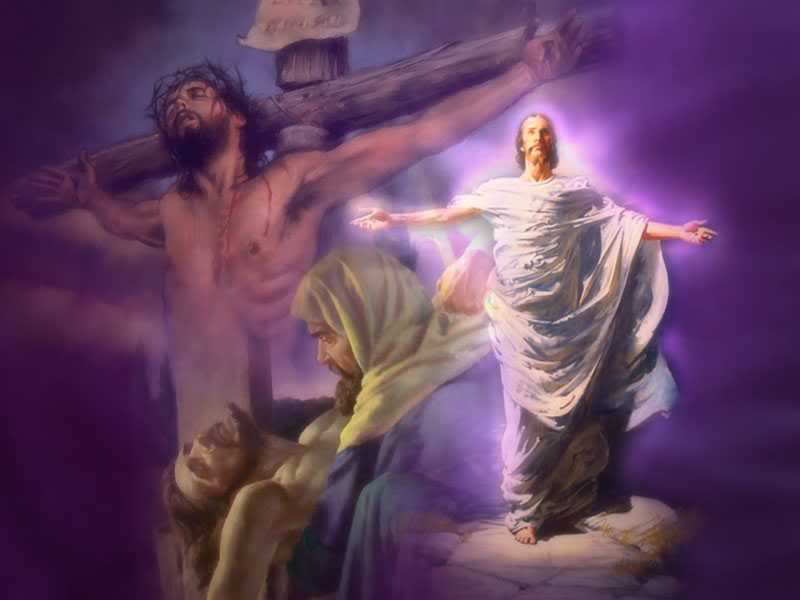Are Baptism and the Lord’s Supper Necessary for Salvation?
- Baptism
- Bible
- Bible study
- Christian Evidences
- Christian Living
- Christianity
- Dr Eliezer Gonzalez
- Faith
- Gospel
- Jesus
- New Testament
- Salvation
Nov 27, 2014 8063
 There are Christians today who believe that Christ has done away with all rituals, of any kind, at the cross. Because all you need to do is believe, there are no rituals that must be observed by Christians today. How should we understand this?
There are Christians today who believe that Christ has done away with all rituals, of any kind, at the cross. Because all you need to do is believe, there are no rituals that must be observed by Christians today. How should we understand this?
While Christ did abolish the entire complex system of Old Testament observances, he replaced them with only two: baptism and what is variously known as the Lord’s Supper, communion, or other terms across different Christian confessions.
However, some Christians believe that baptism is not necessary. And I have noticed that in some churches, when the Lord’s Supper is announced, people tend to stay away. This suggests to me that there is something fundamentally wrong with how some Christian understand salvation.
From a cultural point of view, I can understand why people would shy away from these rituals. Both are totally counter-cultural. And they were totally countercultural from the start, when Jesus instituted them, as well.
The necessity of baptism is taught in various parts of the New Testament. Consider what Jesus said in Mark 16:16:
Whoever believes and is baptized will be saved, but whoever does not believe will be condemned. (See also, for example, Matt 28:18–19.)
Regarding the Lord’s Supper, Jesus commanded, “do this in memory of me” (1 Cor 11:24; see also v.26).
While different churches have different traditions about how baptism and the Lord’s Supper should be observed, they observe these rituals because Christians from the beginning have understood that these are direct commandments of Jesus Christ.
If we are saved by grace through faith alone, how then does this work? Why must we be baptized? Why must we remember the body and the blood of Christ through the ritual of the Lord’s Supper?
Consider Mark 16:16 again. Notice that the key condition for salvation is believing, not baptism. The verse tells us what happens to whoever believes and what happens to whoever does not believe. So what Mark 16:16 is telling us is baptism will be a result of your belief.
Mark 16:16 doesn’t say that if you are not baptized you will not be saved. Why? Because baptism is not a condition of salvation. The thief on the cross was never baptized. However, to the extent that we have the ability to do so, we will want to obey Christ because we have been saved.
In this sense, the Lord’s Supper is the same as Baptism. We observe the ritual, not because it saves us, but in obedience to Christ’s commandment.
Now observe how beautifully these two rituals – baptism and the Lord’s Supper illustrate salvation by grace through faith alone.
No one can baptize himself or herself. No one does any work when they are baptised. You have to let someone else baptize you. Baptism represents our complete trust in what Christ has done for us through his death and resurrection.
The Lord’s Supper represents our true food and drink – the substance and the currency of the Kingdom of God. No-one works for the Lord’s Supper. All we do is take it and eat it. It simply a gift!
Baptism represents our entry into the Kingdom of God, and the Lord’s Supper represents how we live in it! You signed up at your baptism, and you get to remember why again and again through the Lord’s Supper.
The wonderful lesson behind these two rituals that Jesus commanded us is that eternal life is as easy as believing; it’s as easy as trusting him; and as easy as eating and drinking!
Where do I sign up!!!
– Eliezer Gonzalez

George
Oct 18, 2025
Thank you for all this, that we can understand better.
Lawrence
Aug 30, 2021
"Do this in memory of me." These words of His, found in the gospels, couldn't be clearer. When to do it? As in the early Church, since apostolic times, Christians go and do it at least 52 times a year. And yet these days, each Sunday they instead flock religiously, in through the doors of the fitness center (temple).
Eliezer Gonzalez
Mar 20, 2018
Hello Anna – There is no Biblical requirement that you have to be baptised before celebrating the Lord's supper. The order doesn't matter. Everyone is welcome to share in the Lord's supper, if they wish to remember Jesus. It reminds us that salvation is not only available to the members of a particular church. Jesus came to destroy that kind of thinking. Grace and peace – Eliezer Gonzalez
Anna
Mar 16, 2018
But if someone want to celebrate Lord’s Supper must be baptized at first? Or the order doesn’t matter?